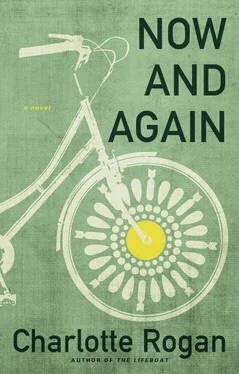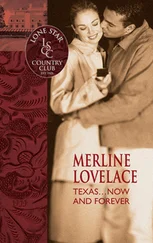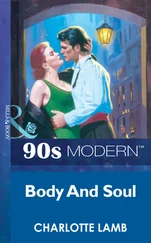4.4 Danny Joiner
Danny forced himself to open his eyes. He remembered going over the equipment list. He remembered Kelly going on about the water and Tishman about the time, everybody focused on the one or two details they could actually control — or not focused, just shuffling through the motions, their thoughts on how they weren’t going home after all or on the endless stretch of weeks that lay ahead. But something else tapped at the door of his consciousness. Something he should be noticing but couldn’t quite grasp. He could see that the front of the truck was tilting strangely, and he understood from a stray flap of canvas that the top had ripped loose despite the double- and triple-checked fastenings — triple-checked because that’s the way Danny did things.
Gravity pulled his body against the seat belt, and his legs were angled toward the steering wheel as if the truck had been reconfigured. He could taste the dust and smell the acrid odor of explosives, which is when he realized that the top-heavy cargo truck had rolled and that the thing he should be noticing was the silence, the complete absence of sound except for a muffled ringing in his ears. And he understood that Pig Eye wasn’t slumped on the seat beside him and that his helmet had come off and that he had hit his head and that his weapon was wedged between the gearshift and his knee.
IEDs were deadly, but they weren’t precise. Shouldn’t the men from the other trucks be scrambling around and shouting? Shouldn’t they be calling out for survivors and coming to find out how he was? His instinct was to assess the situation without moving — the condition of his body, the position of the enemy, the status of the other men — but he couldn’t get his thoughts together because of the ringing and the thick, mashed ache in his head. He remembered climbing into the truck beside Pig Eye, who wasn’t slumped beside him, who wasn’t anywhere that he could see. He remembered reaching over to beep the horn of the truck as the convoy rolled out that morning. He remembered checking the straps on the canvas that covered the cargo, and he remembered helping Kelly stow the extra cases of water even though Tishman kept chasing at his heels like a terrier and saying, “Hurry up. We should have left when it was dark.”
He remembered Kelly asking for the updated strip maps, and even though checking the vehicles had been Tishman’s job, Danny had double-checked everything himself. Then Harraday and Rinaldi and Finch had climbed into their turrets — most of the vehicles had crew-served guns, but not the long cargo truck — and Danny had climbed in beside Pig Eye and tooted the horn just as they pulled into line behind Hernandez and Harraday and Betts and in front of Tishman and Kelly and Finch, who were bringing up the rear. He remembered tooting the horn, but he didn’t remember anything after that.
It was too quiet. Could he have gone deaf? He wanted to test his hearing by saying something, but he thought he should wait until he knew exactly what was what. Meanwhile, the silence pressed in on him, but little by little, his vision cleared. He remembered checking the cargo straps and reaching over to beep the horn. But where was Pig Eye? Not on the seat next to him. And where were the men in the two vehicles in front of him and the one that had been behind? As he struggled to free himself from his seat belt, a volley of gunfire broke through the silence and he hoped it was Rinaldi or Finch or Harraday, giving the bastards hell.
4.5 Pig Eye
Pig Eye crab-walked backward, trying to see around the carcass of the truck. Because it was too risky to raise his head very high, his eyes had to burn through a jumble of brush and spiky grass in order to assess the status of the convoy: the blackened husk of the lead vehicle, the second Humvee swerved into the ditch, his own rolled truck, and the rear vehicle, which had been hit but not destroyed. It made sense now. There had been a series of explosions, explosions that must have come from IEDs wired in a daisy chain. It was an increasingly common tactic. A purposely ill-concealed decoy bomb would stop a convoy, putting the line of vehicles in position for a buried chain of smaller bombs that were then detonated by trigger men — men who were probably still hunkered down somewhere not too far away, ready to take potshots at anything that moved. From the sound of sporadic gunfire, Pig Eye guessed the hide position was a low wall that formed part of an animal enclosure about one hundred meters off the road.
Just as Pig Eye was wondering what had happened to the other men, Finch stood up in his turret, his face bloody and his helmet skewed. C’mon Finch, get down, he thought. Then a spray of bullets and Finch was reeling drunkenly in a slow collapse. After that the guns were mostly silent and everything was mostly still, but Pig Eye knew the Iraqis were out there waiting, invisible behind the wall.
Where the hell were the other men? The same marine who had taught him about using vegetation for camouflage and moving through the landscape undetected had said, “If you don’t fight back, you die.” But they were mechanics and drivers and communications specialists. Still, they couldn’t retreat, so why the hell wasn’t anybody firing?
Pig Eye tried to recall what his truck was carrying. The tables and chairs and sheets of galvanized metal had been unloaded at the school, along with a toilet and sink and the books they had collected. If only he had studied the cargo list as carefully as Danny had studied it. There had to be something he could use to lay a trap for the insurgents the way the insurgents had laid a trap for them. But if he stood up to look for it, the men with the guns would see him. He was bellying back toward the bed of the truck when he saw it — a hand grenade nestled in a patch of brown weeds like a prehistoric bird’s egg in a nest.
4.6 Joe Kelly
Waking up was like coming up from the bottom of the creek in Wimberley, up from the deep pool where the creek bent around a grove of cypress trees, like coming up through the muck and the slime and over a slick of limestone rock, up through the fronds of light that penetrated from the surface like bendable knives, up through the heavy quiet, measured not in decibels, but in pounds per square inch or atmospheres. It was like breaking through the tensive surface to the air above, and once the broken water had healed itself, it was like seeing the trees soaring up toward the clouds and also down through the glassy water and not knowing which set of trees was real.
Kelly could hear his mother calling to him: “Joe, honey, you still asleep?” Her musical voice echoed off of what he presumed to be bathroom tile. He tried to swim up and out so he could answer her that he had been awake for a long time, but it was hard to call out from down at the bottom of wherever he’d been — where he still was. He could measure it in atmospheres, but not in seconds, not in inches or miles or feet.
He must have gone back to bed, which is why she thought he was sleeping when he wasn’t. He couldn’t be sleeping because he heard her talking to his father, who everyone called Joe Senior even though he kept saying, “Call me Dad, son. A boy should call his father Dad.”
“Okay, Dad, okay.” He was awake. It was the month they had moved to New York, the week he had started his new school. “Whatchu you lookin’ at?” asked a police officer who had been staring at him from the opposite corner as Kelly crossed the street. “Whatchu lookin’ at?” he asked again as Kelly mounted the curb and headed toward the brown brick school building with plywood still nailed over the window where a rock had been tossed through.
“Keep your head down,” Joe Senior was always telling him. “Don’t act like you know everythin’. When I was your age, I thought I knew everythin’, and nothin’ good ever came of it, so however you act, don’t act like that.” His hair was grizzled and his face was gaunt, and it was hard to believe he had ever been young.
Читать дальше












